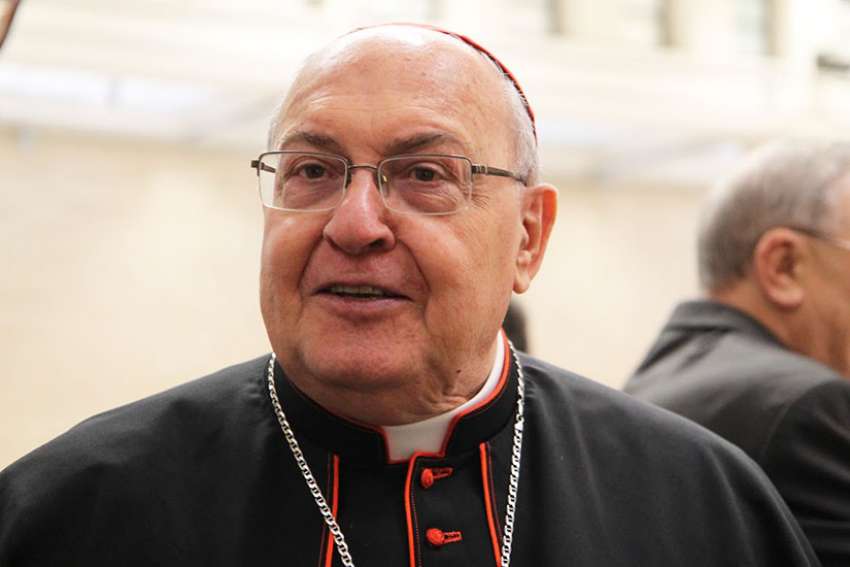In comments to local Catholic media after landing in Ukraine July 11, Cardinal Sandri recalled that when he made his first trip to the country several years ago, it was because “in this land was born and is growing, a great hope, a great vision of the future for this Christian country.”
“Today, unfortunately, I also bring pain for a country that ought to be the vanguard of peace in the life of Europe, but which instead is suffering, in all of it's inhabitants, many deprivations and many victims of this situation,” he said, referring to the ongoing conflict in Ukraine's eastern region.
Because of this, he said, “I also come with a desire for hope for life and a great future of this beloved country.”
Cardinal Sandri, Prefect of the Vatican's Congregation for Oriental Churches, is currently on an official July 11-17 visit to Ukraine to participate in the national Pilgrimage to the Shrine of Zarvanytsia.
He offered his comments to Zhyve TV, which is the Catholic TV Station of Ukrainian Greek Catholic Church, after his arrival.
His visit falls in the midst of ongoing upheaval in the country, largely the result of political instability and tensions surrounding the Russian invasion of their eastern region in 2014, which prompted a conflict that has endured three years.
More than 10,000 people, including civilians, have died in the fighting between Ukraine's military and pro-Russian separatists. Roughly two million others have been forced to flee due to violence and a lack of basic humanitarian necessities, and those who remain lack access to food, heating and medical supplies.
Last April Pope Francis announced that he would be taking up a special collection in all European churches in order to provide relief from those who are still suffering. In December 2016, the Pope made an initial donation of 6 million euros from the funds collected, asking that it be distributed to different charitable projects.
In his comments to Zhyve TV, Cardinal Sandri said it was “an immense joy” for him to be back in the country after three previous visits, including one with St. John Paul II.
“I come particularly because I was invited to the celebration of the Madonna of Zarvanytsia, so I come to bring to her, the Queen of Ukraine, all the veneration we have for her in the Roman Church, but which we know summarizes the Marian identity of the Ukrainian people,” he said.
The cardinal also offered to Archbishsop Shevchuk and all bishops and faithful in Ukraine, “the greeting, blessing and closeness of the Pope, Francis.”
After his arrival, Sandri traveled to the capital city of Kyiv alongside the Vatican's nuncio to Ukraine, Archbishop Claudio Gugerotti, and Sviatoslav Shevchuk, Major Archbishop of the Greek-Catholic Church in Ukraine.
While there, he had a moment of silent prayer in front of the Cross of Maiden Square, where he laid flowers in honor of those who lost their lives during the bloody riots of 2014.
According to the website of the apostolic nunciature in Ukraine, Pope Francis has, through Cardinal Sandri, offered all Catholic and Orthodox faithful in Ukraine, his personal greeting and blessing.
The Pope also expressed his “affection and closeness to the population for the sufferings and deprivations they have and are enduring during the well known conflict,” and encouraged those working for peace and reconciliation, as well as those engaged in assisting the displaced.


